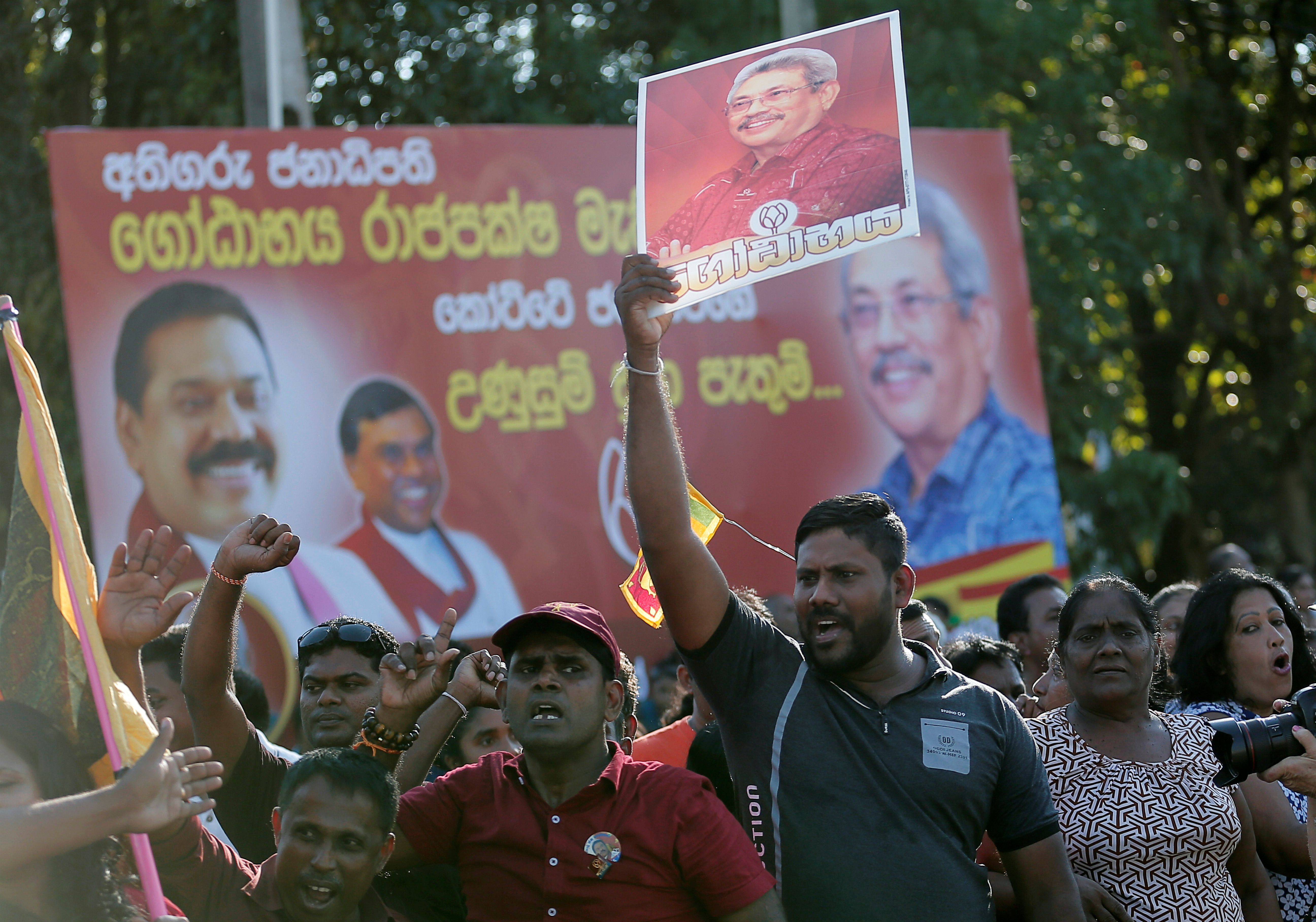Voters in the island nation of Sri Lanka, located in the Indian Ocean just off the coast of India, head to the polls today in a legislative election that could not only reshape the country's democracy, but affect the geopolitical balance of power in Asia.
The election is a family affair. The vote is an opportunity for a party controlled by the Rajapaksa family, a powerful political dynasty that ran the country with a strong hand from 2005 to 2015, to cement their rule over the country again. In 2015, they lost the presidency to the opposition, which took steps to strengthen Sri Lanka's democracy but failed to deal effectively with terrorism and the economy.
Boosted by that government's failings, the Rajapaksas last fall made a big leap towards a restoration when Gotabaya Rajapaksa, an authoritarian army man known as "the terminator," won the presidency and appointed his brother (and former president) Mahinda as prime minister to lead a minority government. In today's election, the family's SLPP party is expected to win in a landslide.
Within Sri Lanka, the likely SLPP victory has raised concerns among activists and democracy watchdogs. The Rajapaksas are credited with ending the country's devastating 30-year civil war during their first stint in power. But rights groups worry about their authoritarian inclinations, human rights abuses, and strong ethnic Sinhalese nationalism, which puts them at odds with the country's sizable Tamil and Muslim minorities.
But outside powers like India and China are keenly interested in what happens too. Why? Because Sri Lanka is a strategic gem in the Indian Ocean, a waterway crisscrossed by boats carrying half of the world's oil shipments, and up to 80 percent of the energy consumed by both China and India. As Beijing and Delhi vie for strategic supremacy in Asia, each wants to have Sri Lanka on side.
Sri Lanka's closest commercial and diplomatic partner has traditionally been India, with which it shares cultural ties, as well as a complicated history of Indian involvement in the Sri Lankan civil war. But the previous Rajapaksa governments made a big effort to engage with Beijing, massively boosting Chinese trade and investment in the country. It was under the Rajapaksas that Sri Lanka signed a massive port deal with China – the subsequent government defaulted on the loans and handed over control to a Chinese company in 2017. More recently, the current president Rajapaksa has moved to revisit a planned Indian port deal in the capital, Colombo.
The Rajapaksas, who style themselves as "Sri Lanka first" nationalists, say they are simply trying to extract maximum benefit for their country by signing deals with the highest bidders, who happen to be Chinese. But all of this has worried India, and domestic Sri Lankan politics has in recent years become increasingly dominated by the (intensifying) China-India rivalry. When Mahinda Rajapaksa narrowly lost re-election in 2015, for example, he blamed Indian spies for helping the opposition. More recently, India and China have competed to provide aid to help Sri Lanka tackle the coronavirus, while China, ahead of today's vote, has been actively cultivating ties across the Sri Lankan political spectrum.
As China and India square off over technology, economic influence, and strategic supremacy in Asia, Sri Lanka will figure more prominently in their rivalry. And today's election will likely mark a turning point in Beijing's favor.
More For You
Chris, an Army veteran, started his Walmart journey over 25 years ago as an hourly associate. Today, he manages a Distribution Center and serves as a mentor, helping others navigate their own paths to success. At Walmart, associates have the opportunity to take advantage of the pathways, perks, and pay that come with the job — with or without a college degree. In fact, more than 75% of Walmart management started as hourly associates. Learn more about how over 130,000 associates were promoted into roles of greater responsibility and higher pay in FY25.
Most Popular
Putin can't stop won't stop. #PUPPETREGIME
In this Quick Take, Ian Bremmer weighs in on the politicization of the Olympics after comments by Team USA freestyle skier Hunter Hess sparked backlash about patriotism and national representation.
